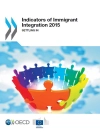This book uses the concepts of both cultural and psychic distance to analyse managers’ perceptions in international business settings, with a specific focus on European and Chinese ventures in the green technology industry. The key concept of ‘distance’ refers to the variations of cultures, languages, business practices, policies and regulations that distinguish different countries. Offering empirical case studies and theoretical refinements on how scholars can conceptualise and operationalise the psychic distance construct, the authors provide a comprehensive examination of European foreign direct investment (FDI) to China and Chinese FDI to Europe. Contributing to the Marie Curie scheme, Partnering Opportunities between Europe and China in the Renewable Energy and Environmental i Ndustries (POREEN), this book is an invaluable read for managers and practitioners.
Inhaltsverzeichnis
1. Introduction.- 2. Psychic Distance and FDI: The Case of China.- 3. A Social Psychological Perspective on the Perceptions of Cultural Differences.- 4. European Entry Decisions in China: The Role of Cultural Perceptions.- 5. Chinese FDI and Psychic Distance Perceptions in the German Renewable Energy Sector.- 6. Summary Conclusions.
Über den Autor
Katiuscia Vaccarini is a Postdoctoral Researcher at the Free University of Bozen-Bolzano, Italy.
Francesca Spigarelli is Assistant Professor at the University of Macerata, Italy.
Ernesto Tavoletti is Associate Professor at the University of Macerata, Italy.
Christoph Lattemann is Associate Professor at Jacobs University, Germany.












